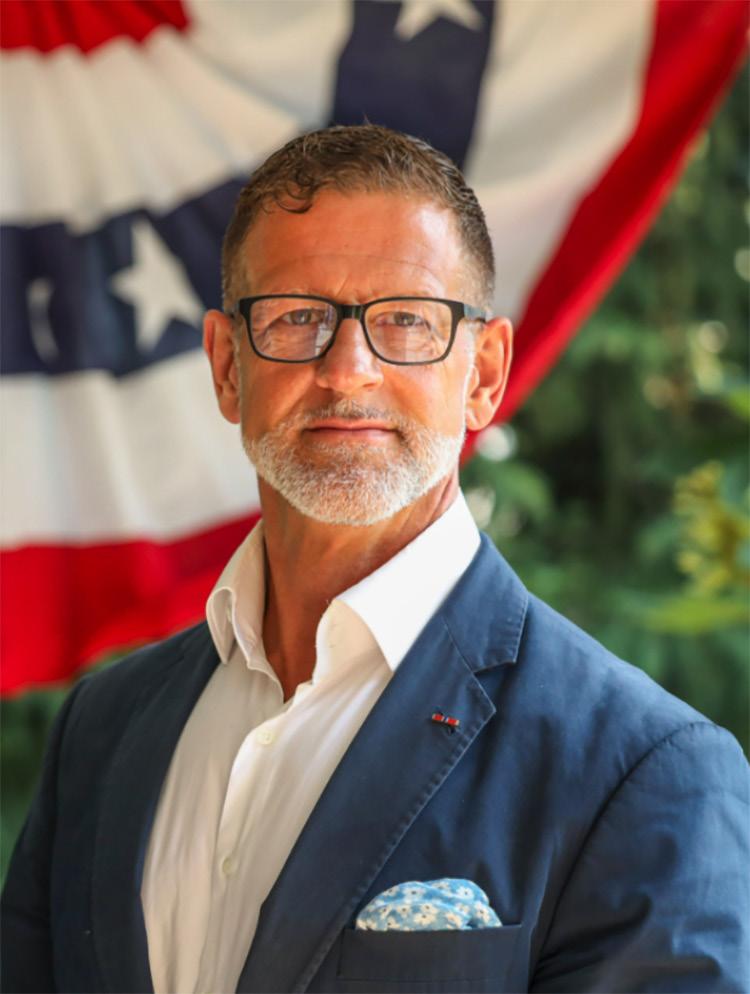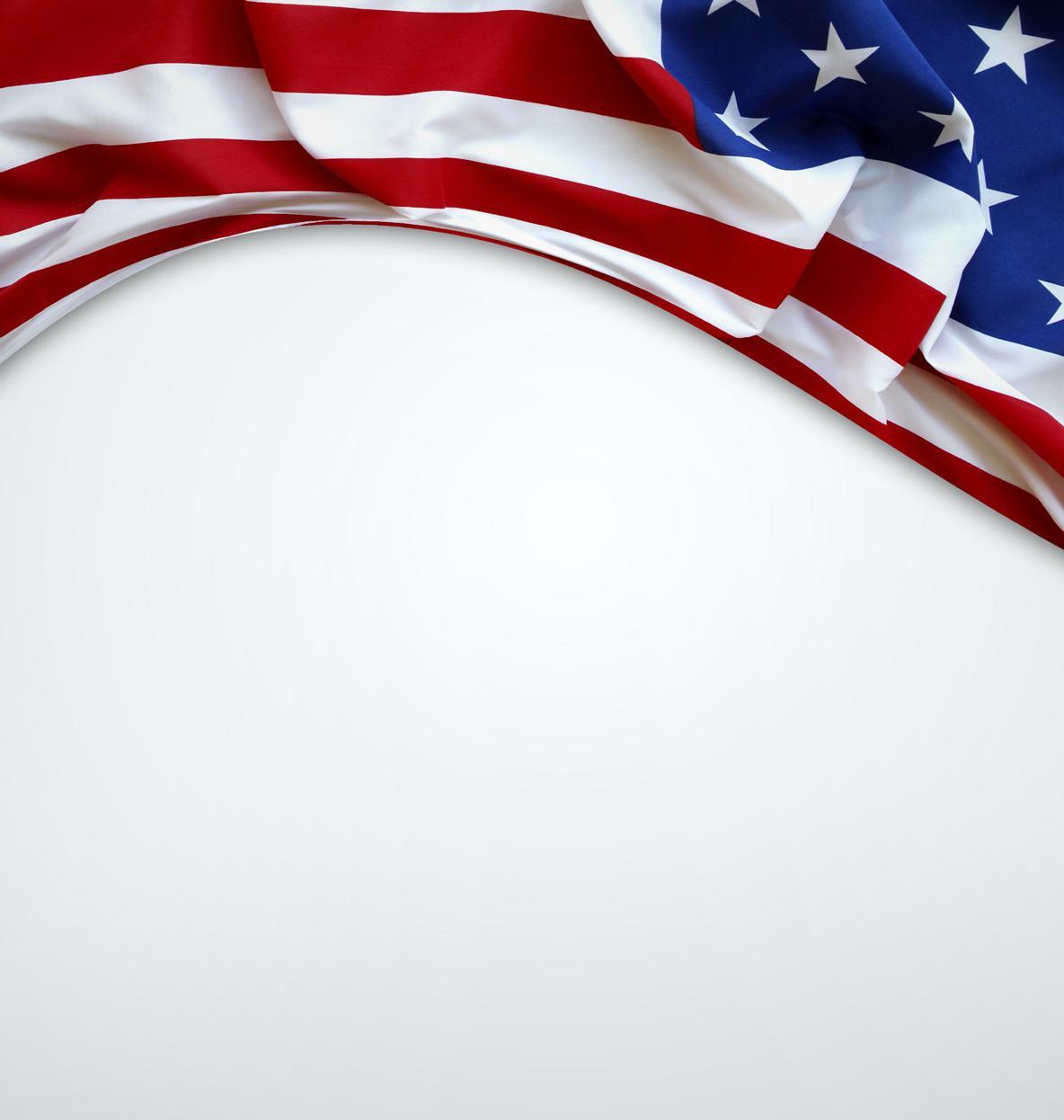
6 minute read
This Veteran Found Hope
After 2 Suicide Attempts, This Veteran Found Hope Once Again & So Can You
By: Steven Kuhn, Combat Veteran and Guest on Addiction Talk, an American Addiction Centers Show
As a military combat veteran, I’ve lost more friends to suicide than I have in battle, and I know of many other vets who can say the same. When you’re fighting for your country, there’s a higher purpose—you’re fighting for freedom and justice. But as a civilian, it’s hard to find that same sense of purpose in delivering the mail, working as a security guard or in some other routine job. In Iraq, I saved lives and helped people in their most desperate time of need and within a few short months, I was working as a door man at a bar in Berlin. It was demoralizing, and I felt lost.
With no purpose, I also lost my sense of self-worth. In my uniform, everyone could see my rank, my medals earned—my value was clear because I literally wore it on my sleeve. But in civilian clothes, I felt like a nobody. One day I was working the door in Berlin and a kid passing by made the remark, “Look at this loser. He can’t even get a real job.” My mind was screaming “I’d just fought in a war!” I was battle scarred and even watched a friend die in my arms. Yet, here’s this kid running me down. And part of me thought he was right because I felt like a loser.
Compounding the problem, no one understands the trauma of war. I can still vividly remember the day I was on patrol and tripped over a severed foot still inside a boot. To this day, the face of a young girl who came to our checkpoint outside of Basra still haunts me. She was burned over most of her body. After our medic bandaged her up, I gave her a piece of butterscotch candy, and she smiled. In that moment, that small gesture made her so happy. I think about her often but have no idea what happened to her after our exchange, or whether she even survived.
Of course, we’ve all heard the statistics: Over 20 veterans commit suicide every day. These are decorated, accomplished leaders, men and women with families, friends and so much to offer. During their service, they were at the top of their game. But because of their combat wounds—mental and emotional as well as physical—they’re unable to cope with civilian life.
I know because I was one of them. I spent months on the front lines during the Gulf War in Iraq. I was an excellent soldier, even earning the Bronze Star for my service. But when I left active duty at age 27, I struggled to find my place in the world and suffered from PTSD.
While most people would assume returning to “normal life” would feel like a tremendous relief, it’s actually extremely hard. For veterans, civilian life is anything but normal. It’s chaos. After years of It took over 18 years and two suicide attempts for me to finally realize I was my own worst enemy. I was so attached to my identity as a soldier that I couldn’t see myself as anything else. When I realized I had the power to change it—that my past didn’t have to dictate my future—it was incredibly liberating, and brought me down an entirely new path.
If you’re a veteran who’s feeling lost, struggling to find your way, and/or suffering from PTSD and suicidal ideations, please know that there is hope. Here’s how I found the will to live again.
Create your own reality.
I see a lot of vets who wear t-shirts proudly declaring themselves a disabled veteran. They wear their trauma as a badge of honor because they think that’s their identity. And while I certainly don’t diminish their service or sacrifice, the truth is, that’s who they were, not who they are today. When you live in the past, it’s impossible
to move forward. You have everything you need inside you right now to create a better future. When you emit that frequency, that’s what you attract. Surround yourself with people who are moving forward. Change how you react to situations. See things from a different perspective—try to see yourself and your behavior through the eyes of your spouse or family members, for example. What would you tell yourself to do—stay stuck in the past and suffer or heal and move on?
Talk about it.
Most veterans don’t talk about their experiences because they don’t want to be a burden—no one really wants to hear about the horrors we’ve seen, right? For others, quiet equals strength, and sharing is a sign of weakness, which they’ve been conditioned to avoid at all costs. Admitting you’re having trouble dealing with things is not a moral failure. Like a pressure cooker, keeping it bottled up will only cause it to sometime explode. Literally no good comes from suffering in silence and trust me, there’s zero harm in admitting you need help. Talk to your spouse, a trusted friend or find a support group—anyone who will listen and help you move forward.

Let go of survivor’s guilt.
I talk to a lot of vets who feel tremendous guilt over their brothers and sisters who didn’t make it home. They feel it’s somehow their fault or that it should’ve been them who died instead. I completely understand that feeling because I too lost a friend as a result of friendly fire. As I watched him through my night vision goggles, I felt helpless and almost detached from the situation, like it was a movie. All I could think about was how it could have been me, and I felt selfish and ashamed for feeling that way. But if the roles were reversed, would you want your friends to feel guilty for the rest of their lives? Absolutely not. Remember that right now, those fallen brothers and sisters you miss so dearly are looking down on you saying, “Listen, we’re up here, but you’re still there—living. So go do it. And don’t screw it up.” We owe it to them to move on. We can’t let them down.
While nothing can erase the trauma and scars of war, we can’t let the past define us. War is hell, and it’s already robbed us of so much. Don’t let it rob you of your present and future life, of the joy of feeling loved and appreciated by those around you.
If you’re struggling with PTSD, suicidal thoughts or with simply finding your path in the civilian world, I urge you to get help. There are plenty of us who know exactly how you feel, and we can show you a different way to live where you no longer have to suffer in silence.
SALUTE TO RECOVERY Addiction Treatment For Veterans
ProudVeteransAffair CommunityCare Provider & Partners
For more information, call 866.915.3555
We have someone available 24/7 to answer your call
For veterans dealing with substance abuse, PTSD and other mental health disorders, our Salute to Recovery Program is designed specifically for you. Built on camaraderie, trust and evidence-based therapies, the program provides a place of healing among fellow veterans to get you on the path to recovery faster. Treatment includes:
• Trauma Groups • Emotion Regulation • Grief & Loss • Pain Management • Coping Skills • Cognitive Behavioral Therapy • Dialectical Behavioral Therapy • Relapse Prevention • Motivational Interviewing • Cognitive Processing • EMDR (Eye Movement Desensitization and Reprocessing) • 12-Step
• Art & Music Therapy
AdCare, Desert Hope,Recovery First, River Oaks, Sunrise House, Oxford, and Greenhouse are part of American Addiction Centers’ National Network of Treatment Centers.
www.americanaddictioncenters.org










